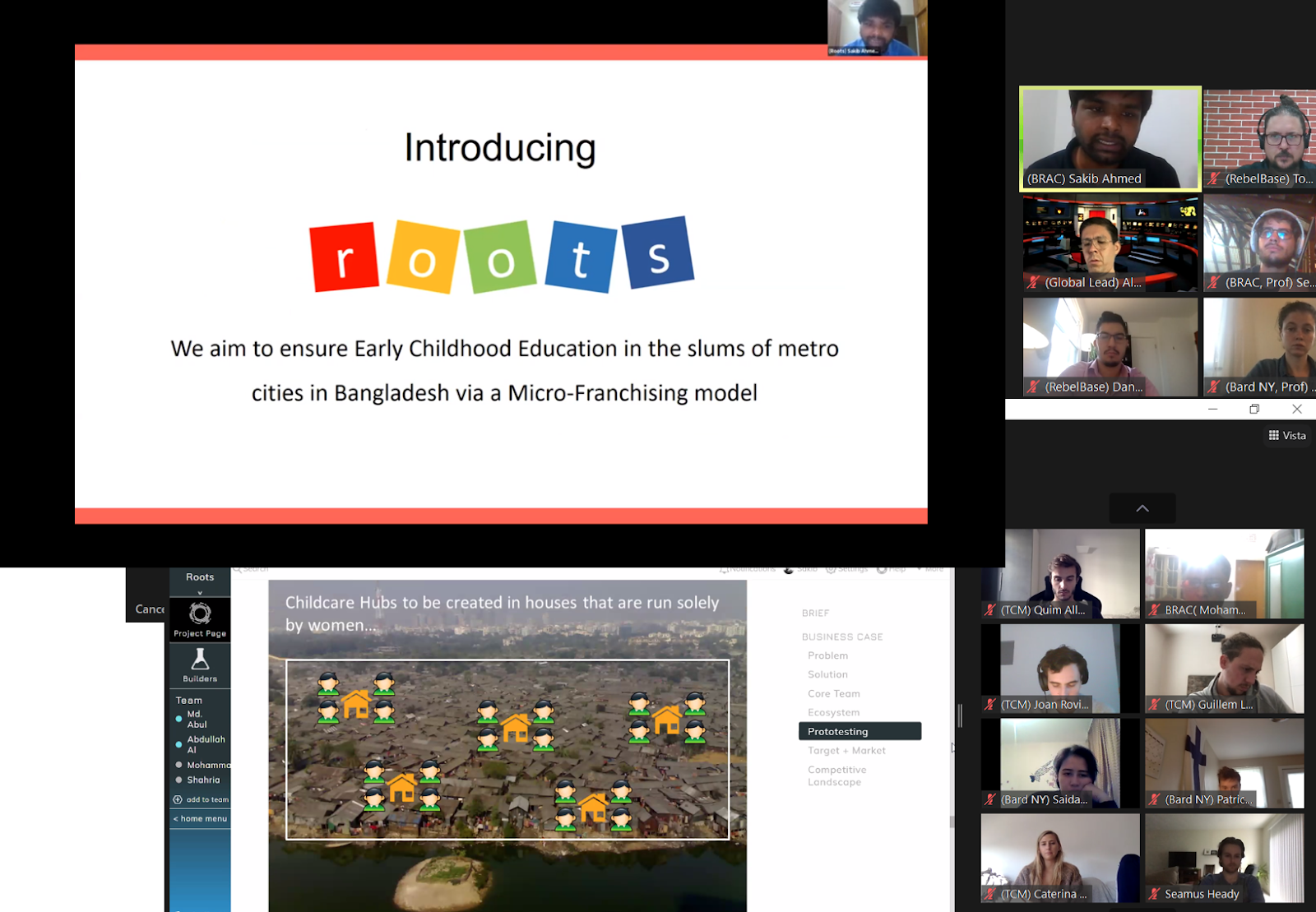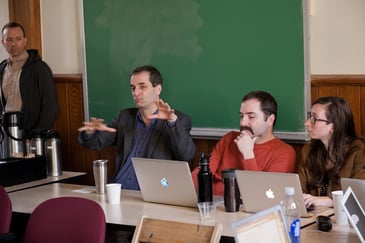Bangladeshi Team Wins Bard “Shark Tank for Sustainability” Prize

Team Roots from BRAC University has won a US $1500 first prize for their vision of improving quality and utilization of childcare services in the city of Dhaka. The team presented their project virtually at the Bard MBA program’s annual “Disrupt to Sustain” pitch competition, on December 15.
The BRAC team made the case that early childhood education could be upgraded through a branded training model for home child-care providers. By elevating and certifying the skills of these home-workers, the business would provide parents the confidence and incentive to move their children into education-focused care. This would lead to higher incomes for child-care workers as well as better outcomes for kids.
“This is not just about winning a contest, it is the recognition that will help us carry out Roots in the future.” said team member Sakin Ahmed. “The prize money will help us launch our project at the Korail Slum in Dhaka, and move it forward.”
The Roots vision emerged as part of a global course in social entrepreneurship that, in addition to Bangladesh, included classrooms at Al Quds University in Palestine, the American University of Central Asia in Kyrgyzstan, TecnoCampus in Spain, and Bard College in the United States, led by Bard MBA alum Eliza Edge. The course featured a weekly session with Bard MBA Professor Alejandro Crawford, along with classes taught by local co-instructors — all dynamically connected via the RebelBase project platform. The course was part of a broader effort led by Bard College to create global educational collaboration for social impact, The Open Society University Network (OSUN).
“We at the Graduate School of Management are beyond proud of what our students from Team ROOTS have pulled off this semester”, said Sebastian Groh, the BRAC University professor who worked with the Roots students. “This is yet another excellent example of a new breed of entrepreneurship is taking root in Bangladesh where the bottom line of these upcoming ventures centers around addressing tough social challenges.”
In Bard’s Disrupt to Sustain Business Competition, judges reward businesses that are most likely to achieve impact at scale (“disrupt” the existing paradigm), and affect widespread social and environmental gains (“sustain” regions and communities). Undergraduates from the OSUN schools competed head to head against Bard MBA teams, with Roots taking the first-place prize for OSUN competitors. The overall winners of this year’s MBA competition included a company focused on algae-based textile fibers, and another proposing a business model for green retrofits for homes in low-income neighborhoods.
Bard College is a managing institution for The Open Society University Network, a global partnership of educational institutions that integrates learning and the advancement of knowledge -- in the social sciences, the humanities, the sciences and the arts, on undergraduate and graduate levels--across geographic and demographic boundaries, promotes civic engagement on behalf of open societies, and expands access to higher education for underserved communities.





